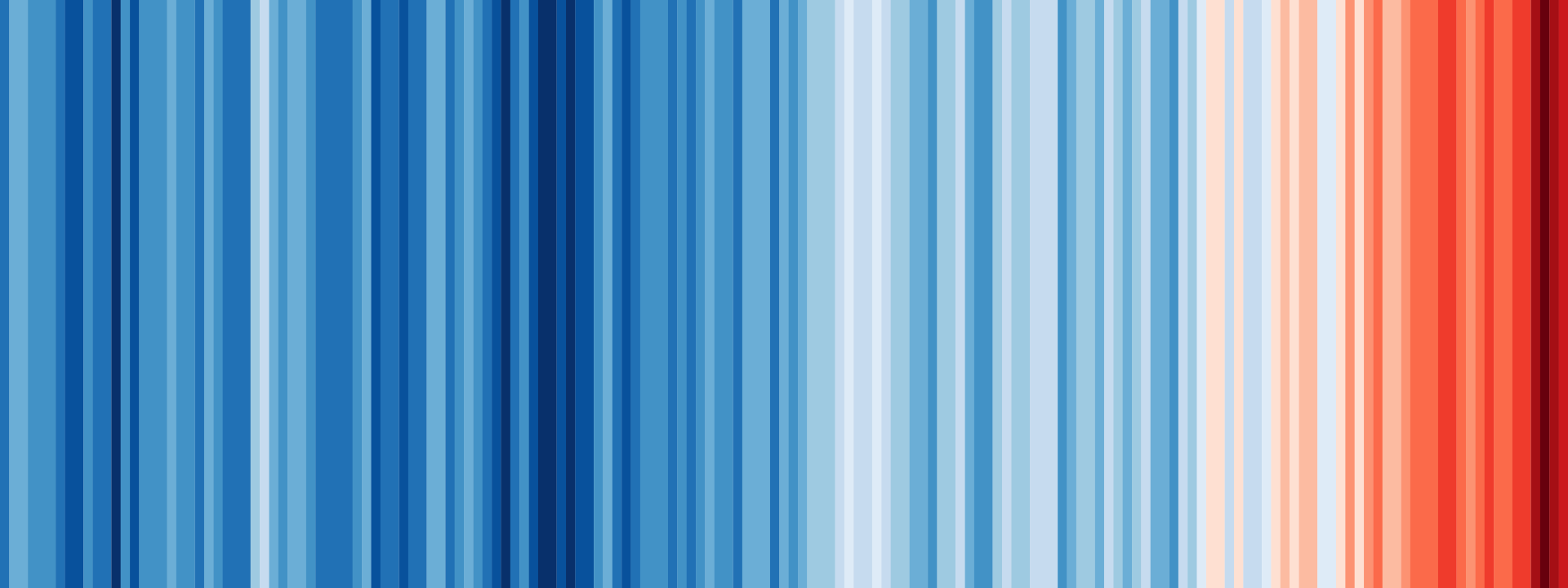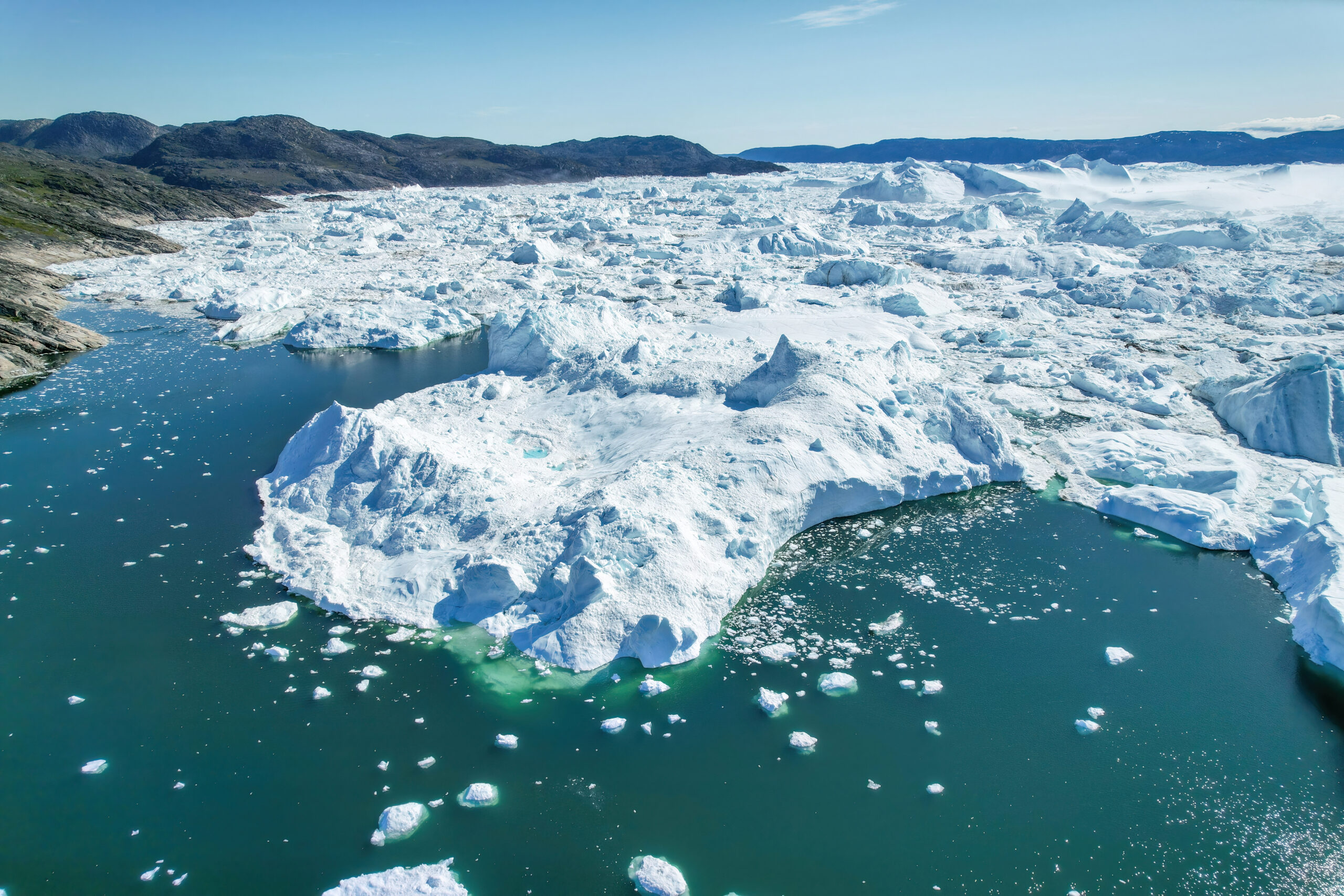Global changes
Global changes are upheavals caused by human activities. They impact the climate, oceans, biodiversity, and human societies. Understanding them is already taking action to better face them.

What are global changes ?
For over two centuries, industrialisation, overconsumption of resources and the intensification of human activities have been altering the planet’s delicate balance. These large-scale changes are known as ‘global changes’ and are already having a tangible impact on our daily lives.
To meet these challenges, it is essential to understand these phenomena in order to adapt our lifestyles and build a more sustainable future.
Some phenomena that constitute global changes
Climate change
Increase in greenhouse gases in the atmosphere that alter the climate.
Sea level rise
Water expansion and melting of freshwater ice (glaciers, snow, icebergs).
Ocean acidification
Decrease in ocean pH due to the absorption of CO₂ by seawater.
Pollution
Introduction of substances, waste, or disturbances caused by human activity into natural environments.
Details of major planetary changes
Incresingly extrem weather events
Climate change makes extreme events more frequent, longer, and more intense. Heatwaves, floods, storms, droughts: these sometimes unpredictable events affect agriculture, human health, and the availability of essential resources like water.
Pollution
Global changes are not limited to climate: they also include the many forms of pollution, defined as the introduction of substances, waste, or disturbances caused by human activity into the environment—chemicals, plastics, noise, light, and more.
These pollutants disrupt ecosystems, degrade habitats, and may affect the health of species, including our own.

The role of the IPCC in addressing climate change
Created in 1988, the IPCC (Intergovernmental Panel on Climate Change) rigorously assesses the causes and consequences of climate change, as well as the means to limit this threat, notably by reducing greenhouse gas emissions.
The IPCC is not allowed to recommend specific policies. It proposes different emission scenarios to anticipate climate evolution.
The SSP scenarios (Shared Socioeconomic Pathways) model several climate trajectories. One of the most studied and most plausible, SSP3-7.0, projects an increase of +3.6 °C (compared to 1850 temperatures) by 2100 if greenhouse gas emissions continue to rise without strengthened international cooperation.
The consequences of global changes for humanity
It is common to hear in the public debate on global change that we must “save the planet”. But this wording is misleading, because since its formation, Earth has already experienced numerous catastrophes and mass extinctions. Some species have disappeared forever, while others have evolved and thrived.
The planet will “survive”. What is truly at stake is our own survival and that of our human societies.
Global changes directly affect our health, our food, and our security. Some regions are becoming uninhabitable or uncultivable. Populations are forced to flee rising seas. Biodiversity is collapsing, weakening food chains.
These upheavals trigger major crises on a global scale: famines, conflicts, mass displacements, and health problems.
Agir pour limiter notre impact : les bonnes pratiques
Housing
- Improve thermal insulation (windows, walls, roofs) to reduce heating and cooling needs,
- Favour renewable energy sources,
- Adopt eco-friendly habits (lower the heating, switch off devices on standby, etc.),
- Reduce water consumption: collect rainwater for watering or cleaning, prefer quick showers over baths…
Food
- Reduce meat consumption (especially red meat),
- Favour local, seasonal, and organic products,
- Avoid food waste: plan meals, eat leftovers,
- Cook at home and limit processed or ready-made meals.
Consumption
- Favour second-hand purchases (clothes, furniture, books, etc.),
- Choose more durable, repairable, or refurbished products,
- Repair rather than replace: sewing, fixing appliances,
- Reduce packaging: buy in bulk or use reusable containers.
Tourism and transport
- Limit air travel (especially for short distances,
- Favour local holidays or those accessible by train,
- Adopt sustainable mobility in daily life : walking, cycling, public transport,
- Respect natural environments : avoid diturbing wildlife, minimise waste, and steer clear of fragiles areas..
Global changes: understanding in order to act
Climate, oceans, biodiversity: global changes are altering natural balances on a planetary scale. Climate warming, ocean acidification, melting ice, pollution… These mainly human-driven phenomena have a direct impact onmarine ecosystems and on our societies. Understanding these mechanisms is essential for taking action. Everyone can help reduce their impact through concrete steps and daily commitment.
